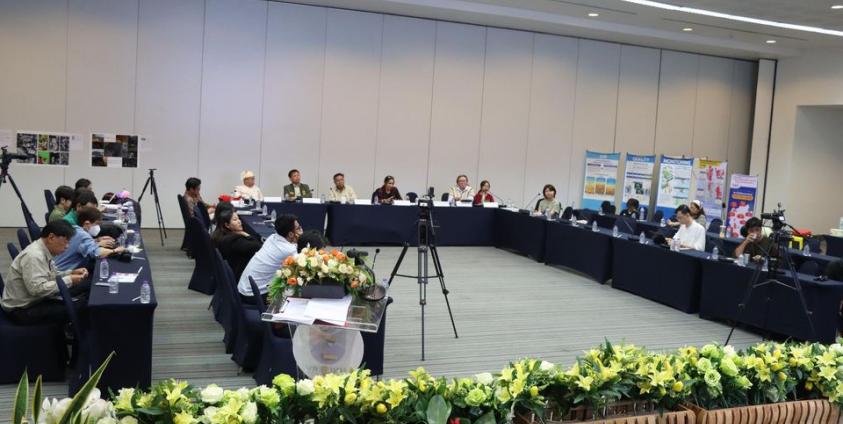On March 29, ethnic environmental protection organizations from the Myanmar side, along with Thai civil environmental groups, gathered in Chiang Mai, Thailand, to tackle the surge in wildfire incidents and the accompanying air pollution, caused by smoke from burning fires in the Salween River areas along the Thailand-Myanmar border.
The discussion on "Reducing Wildfire for Respiratory Tract Health" was attended by Karen, Karenni, and Shan conservation groups dedicated to environmental protection along the Thailand-Myanmar border, and representatives from the Thai Environmental Protection Organization, as well as other entities including Evergreen Group (KEG), a Visiting Fellow at ISEAS-Yusof Ishak Institute, Health of The Salween Wildlife Sanctuary, and the Northern Breath Council.
Last year, the governments of Laos and Thailand engaged in discussions with Myanmar's coup Junta to collaboratively address the issue of air pollution exacerbated by forest fire smoke. However, the current initiative involves environmental protection organizations in the border region, rather than governments, convening to tackle this challenge together.
Paul Sein Twa, director of Kesan ( The Karen Environmental and Social Action Network) who represented Karen people’s environmental protection initiatives told KIC,
"The smoke issue affected regions like Chiang Mai, Chiang Rai, and southern Mae Hong Son in Thailand, impacting public health and the environment. In certain incidents, forest fires were deliberately caused by those engaged in clearing space for agricultural land along borders, including in Thailand, thus exacerbating this problem. Smoke will not respect borders; it spreads everywhere. Hence we discussed working together to address this issue.”
The ethnic representatives also presented and discussed the challenges hindering effective conservation efforts, including security issues and instability resulting from conflicts in Myanmar.
Among the states bordering Thailand, the Shan and Karenni have experienced more forest fires compared to the Karen. During the meeting, Paul Sein Twa shared that Mutraw District in Karen State controlled by the Karen National Union (KNU), encompasses 1.35 million hectares of forest, with the Salween Peace Park being the only area with a low incidence of forest fires.
"In general, our Salween Peace Park has the fewest forest fires caused by humans and wildfire cases compared to other border regions. During the meeting, participants inquired about our methods for achieving this. We provided detailed explanations of the laws and systems in place to protect forests and wildlife”, Paul Sein Twa added.
Every year, from February to June known as the open season, the Mekong countries, including Myanmar, experience hot weather and numerous wildfires. As a consequence, border areas like Tachileik on the Myanmar side and Chiang Mai, Chiang Rai, Mae Sai, and Mae Hong Son on the Thai side frequently endure thick smoke and air pollution due to these fires.
To mitigate air pollution stemming from smoke and smog, the Thai government responded by deploying airplanes to induce artificial rain in certain areas of the country's north in March. However that has had little impact on a very big problem covering a wide area and many different Thai provinces.
Paul Sein Twa’s Kesan has clearly pointed that way to prevent forest fires depends on grassroots community action to safeguard the interest of the local people and block commercial interests and individual from starting fires for personal or corporate gain. Thailand can learn from the success of the Karen people’s Salween Peace Park and need to involve villagers in northern Thailand to be mobilisation for both conservation and fire- prevention.








